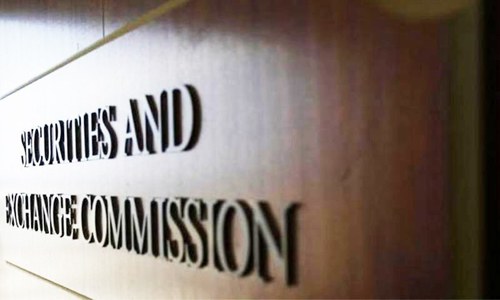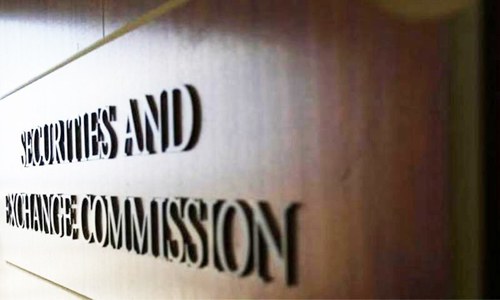In the global capital markets, the latest trend is the glut issuance of ‘blank cheques’ or special purpose acquisition company (SPAC) initial public offerings (IPO). From a niche market in 2003, SPACs have eclipsed previous records by fetching gross proceeds of $162.53 billion by December 2021. There have been 613 SPACs till Dec 2021 as acceptance of this financial vehicle surges into other international markets, continuing the SPAC odyssey.
SPACs are companies without independent commercial operations and are formed strictly to raise capital through an IPO to acquire or merge with an existing company — a new form of listed shell company — owned by SPAC sponsors. These sponsors are traditionally seasoned corporate managers, private equity specialists or hedge fund managers with high financial network connectivity. They are pivotal enablers of raising capital through SPAC listing via an IPO with the intent to acquire an income-generating business or assets through the IPO money.
In SPAC listings, shareholders effectively place bets on the acumen of the sponsoring dealmakers. An important due-diligence question is whether an increasing number of firms are taking advantage of frothy stock markets. The other fundamental question is whether stock exchanges play their financial intermediary role where issuers and investors transact in stable, transparent and fair marketplaces.
However, on the risk side, SPACs are highly speculative or risky investment vehicles because they are much more cash-strapped and speculative as compared to traditional IPOs hence they are highly prone to default risk.
Special purpose acquisition companies lack transparency, especially when the target company is unknown
Nonetheless, the SPAC frenzy has been to the extent that stock exchanges from Singapore and Hong Kong in Asia, the London Stock exchange in the UK, and the Nasdaq in the US are competing for business and adjusting rule books to attract new listings. This hot new trend of raising capital and going public is reverberating even nascent and emerging capital markets; the Abu Dhabi stock exchange is the latest to catch the buzz.
This innovative way of deal-making is also making waves in the Pakistan equity market: the Securities and Exchange Commission of Pakistan (SECP) has amended the public offering regulations to introduce a regulatory framework for SPACs in September 2021. The notion is motivated by SECP’s efforts to provide a viable and sustainable ecosystem and a more conducive regulatory environment for capital formation in the country through the primary market.
This endeavour is promising to widen the financial base in the country with the lowest banking account participation in the region. But the structure and design of SPACs raise quite a few questions about when Islamic finance covenants should be a due consideration after the recent ruling from the federal Sharia court and given the high demand for Sharia-compliant investment avenues in the market.
Market experts feel that for any such initiative to introduce innovative structures in Pakistan’s capital markets, additional consideration should be accounted for in devising a fair, transparent and inclusive financial system that encourages Sharia-compliant offerings to the general public. A close review of the new regulations shows that the exercise is based on the standard practice among international markets; however certain considerations from Islamic commercial law are not addressed.
The SECP requirements stipulate that the paid-up capital requirement for SPAC shall be Rs10 million, and it shall raise at least Rs200m through a public offering. The SPACs promoters/sponsors, directors and CEO shall meet the fit and proper criteria as specified by SECP.
Firstly, SPACs are yet to debut on the Pakistan Stock Exchange. Nonetheless, the current SECP rules do not require the classification of the SPACs in terms of their nature being conventional or Sharia-compliant — a key decision-making implication for Islamic mindset investors who are an increasing segment of the economy and the financial sector.
While the SECP’s effort is to remain relevant to the global financial markets and pursue innovation in the Pakistani financial markets, the underlying opacity in the SPAC construct calls for added caution and vigilance. A replication of the typical SPAC would limit the investment pool as a large majority of retail investors and many institutional investors of the market are looking for halal investment opportunities, which are free from usuary (riba) and speculation —the fundamental Islamic finance guidelines.
Secondly, conventional SPACs by construction lack transparency, especially when the target company is unknown, leading to the jargon of ‘blank cheque company’. Thus, this blind investing arrangement gives rise to uncertainty or gharar — a prohibition in Islamic commercial law.
However, SECP’s latest amendment requires that for each new transaction, approval is required from the shareholders after providing mandatory disclosures about the target company being acquired or merged to address the issue, but it is silent on the criteria about the Sharia-compliant nature of the target company and nature of funding raised for the acquisition or merger of the target company.
Thirdly, in light of the recent ruling by the Federal Sharia Court, Pakistan is to implement an Islamic economic system by 2027. The regulators need to be cautious and vigilant to account for issues that Islamic law forbids in developing new financial instruments. They need to offer instruments that cater to the financial needs of the market and are forward-looking to the demands of the Islamic framework.
Granted, there are limits to what the commission can do in adjusting the underlying covenants of SPAC. But this is the right time for the commission to involve its own Sharia board and other external stakeholders, such as academics and practitioners working in the Islamic financial sector, to have provisions in SPAC regulations that promote and encourage Sharia-compliant public offerings. Such forward-looking steps would help the commission to adjust its rule books accordingly and well before the first SPAC reaches the investors.
It is recommended that a dedicated section be introduced in the SPAC regulations that define the criteria for Sharia-compliant SPAC. It should provide guidelines on screening the target companies for acquisition and merger, define the shariah compliant avenues for investing funds in the escrow accounts and incorporate some oversight and disclosure mechanisms to have a corporate governance structure.
The development of regulations to offer the first Sharia-compliant SPAC is also an opportunity that can serve as an example to the global markets and regulators. Further, this step will help to enhance the market base by attracting untapped retail investors looking for Sharia-compliant investment opportunities.
Ahmed Ali Siddiqui is the director of IBA’s Centre for Excellence in Islamic Finance and Dr Tasawar Nawaz (Lecturer, University of Plymouth, UK) and Dr Nader Virk (Senior Lecturer, Swansea University, UK) are research fellows at CEIF
Published in Dawn, The Business and Finance Weekly, October 31st, 2022













































